En écoute...
Cette table-ronde est la 6e de la série de rencontres publiques “Médias Migrations” organisée par Sciences Po-Ceri (Projet PACE), l’Institut Convergences Migrations (revue De Facto Migrations) et l’association Désinfox-Migrations.
Pour la sixième table ronde des rencontres Médias Migrations, nous reviendrons sur le projet de loi immigration-asile, en cours d'étude au Conseil d'Etat. Notre débat portera sur la proposition de régularisations de personnes en situation irrégulière qui occupent un métier dit "en tension ». Economistes et journalistes analyseront les ressorts et effets économiques d’une réforme en cours et son traitement médiatique.
Introduction :
Charlotte Recoquillon, Désinfox Migrations
Hélène Thiollet, CNRS CERI Sciences Po, projet PACE
Invités :
Francesca Sirna, sociologue
Sarah Schneider-Strawczynski, chercheuse en économie de la Paris School of Economics
Céline Mouzon, journaliste chez Alternatives économiques
Laurent Neumann, journaliste chez BFM
Responsable scientifique : Hélène Thiollet, Sciences Po-Ceri
Intervenants :
Stéphan Davidshofer, Université de Genève
François Foret, Université Libre de Bruxelles
Frédéric Mérand, Université de Montréal
Dans le cadre du Groupe de recherche sur l'action multilatérale (GRAM), ce séminaire de recherche est organisé en partenariat avec l’Ecole doctorale de Sciences Po et le CERI (Centre de recherches internationales).
Le séminaire est ouvert à tou-te-s : étudiant-e-s, doctorant-e-s, enseignant-e-s, chercheure-s de tous les laboratoires et à toute personne intéressée.
N’hésitez pas à contacter Anaëlle Vergonjeanne pour être ajouté à la liste de diffusion du GRAM.
Responsables scientifiques :
Guillaume Devin, professeur des universités à Sciences Po, chercheur CERI,
Alix Defrain-Meunier, doctorante, Sciences Po-CERI,
Anaëlle Vergonjeanne, doctorante, Sciences Po-CERI. (Groupe de Recherche sur l'Action Multilatérale)
Conférence organisée à l'occasion de la publication de l'Étude du CERI N°263
"Oman : quand pandémie et transition politique se conjuguent", de Laurent Bonnefoy
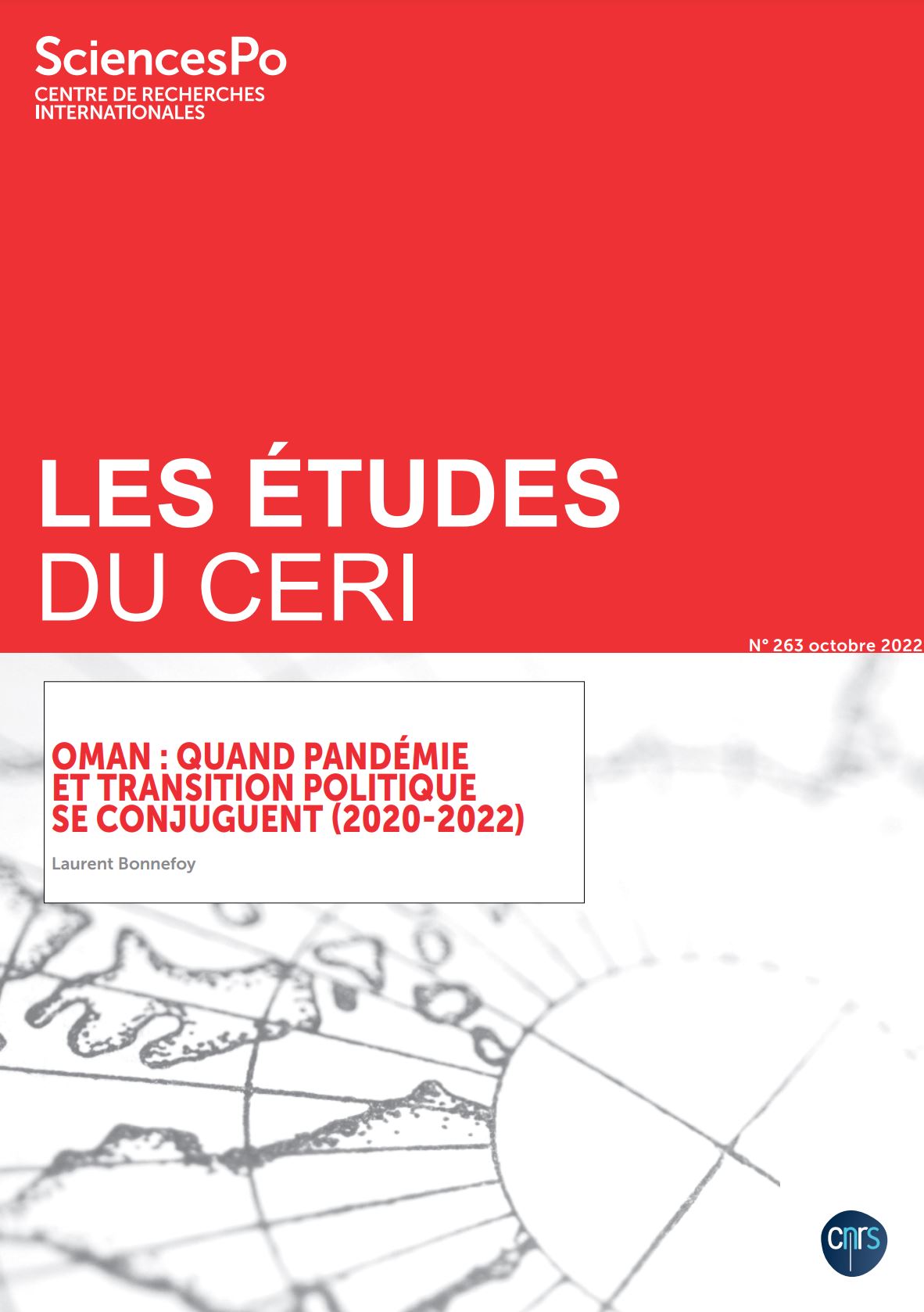
Présidence :
Alain Dieckhoff, directeur du CERI-Sciences Po
Intervenants :
Laurent Bonnefoy, politiste, chercheur CNRS au CERI-Sciences Po, s'intéresse en particulier aux mobilisations à référent religieux, avec un intérêt marqué pour le Yémen.
Fatiha Dazi-Héni, politiste, spécialiste des monarchies de la péninsule Arabique, chercheuse à l'Institut de recherche stratégique de l'école militaire (IRSEM).
Frédéric Lagrange, professeur des universités, directeur-adjoint de l'UFR études arabes et hébraïques à Sorbonne Université. Ses travaux portent essentiellement sur la littérature et les productions culturelles arabes contemporaines.
L'étude du CERI n°263 est en accès libre en version électronique sur notre site internet.
Retrouvez ici notre entretien avec Laurent Bonnefoy
Responsable scientifique de l'événement : Laurent Bonnefoy, Sciences Po-CERI
Une séance organisée dans le cadre du cycle de séminaire Énergie et Cohésion : gouvernance régulations et négociations organisé en partenariat avec EDF/RD.
Intervenant :
Jacques Percebois, Professeur Emérite à l'Université de Montpellier
Responsables scientifiques : François Bafoil (Sciences Po-CERI / CNRS), Ferenc Fodor (EDF R&D, Verso project), Rachel Guyet (CIFE)
Une séance de séminaire organisée dans le cadre du groupe de recherche : Sciences Sociales et Psychanalyse.
Intervenant :
Paul Zawadzki, maître de conférences Paris 1
Responsables scientifiques : François Bafoil, Sciences Po - CERI / CNRS (UMR 7050) et Paul Zawadzki, Groupe Sociétés, Religions, Laïcités (GSRL/UMR 8582).
Une séance organisée dans le cadre du cycle de séminaire Énergie et Cohésion : gouvernance régulations et négociations organisé en partenariat avec EDF/RD.
Intervenante :
Giulia Fiorentino, PhD Candidate, Dept. of Political Science - University of Naples "Federico II"
Responsables scientifiques : François Bafoil (Sciences Po-CERI / CNRS), Ferenc Fodor (EDF R&D, Verso project), Rachel Guyet (CIFE)
Table ronde #5
Cette 5e rencontre “Médias Migrations” organisée par Sciences Po-Ceri (Projet PACE), l’Institut Convergences Migrations (revue De Facto Migrations) et l’association Désinfox-Migrations.
De nombreux chercheurs ont contesté dès 2015 l'utilisation de l'expression de "crise migratoire" d'une part car ils font valoir qu'il s'agissait d'une crise de l'accueil et d'autre part car la notion de crise entraîne la mise en place de dispositifs d'urgence spécifiques. Nous l'avons vu avec la crise sanitaire ou la crise de l'énergie, qui qualifiées de telles ont entraîné des mesures particulières.
Introduction :
Charlotte Recoquillon, Désinfox Migrations
Hélène Thiollet (CNRS CERI Sciences Po) projet PACE
Invités :
Catherine Perron, Sciences Po-CERI, membre du projet PACE
Marie Moncada, PhD, politiste, en charge du projet BRIDGES
Cory Le Guen, journaliste
Emmanuelle Chaze, journaliste
Responsable scientifique : Hélène Thiollet, Sciences Po-Ceri
Séminaire du 10/11 reporté au jeudi 1er décembre.
Une séance organisée dans le cadre du Séminaire Chine du CERI.
Intervenant :
Jean-Louis Rocca, Sciences Po, CERI
Discutant :
Yves Chevrier, EHESS
Présidence :
Françoise Mengin, CERI-Sciences Po
Responsables scientifiques : Françoise Mengin et Jean-Louis Rocca
.jpg)
Abstract:
The large Asian economies of the Indo-Pacific – China, Japan, India, and South Korea – are vital to the long-term economic prosperity of the Arab Gulf states. They are the Arab Gulf states’ largest trading and energy partners; in the decades to come, they are likely to continue to constitute a principal source of demand for Gulf hydrocarbons despite the global transition to a net zero carbon economy. Meanwhile, the Gulf states have embarked on ambitious economic modernization visions that are meant to prepare them for a post-oil world. The large Indo-Pacific economies are also positioning themselves as providers of technology and know-how to the Gulf states, forging partnerships that the Gulf states view as being key to their own economic modernization strategies. Although trade, investments, migration, and technology are likely to remain the backbone of the Gulf states’ relations with the large Indo-Pacific economies, nascent defence and security cooperation suggests that these relations are already spilling over into the strategic realm.
From a geostrategic perspective, the Gulf states consider their Indo-Pacific ties as being instrumental to building up their geo-economic power through trade, investments, and the transfer of knowledge. Given the US’s waning security commitment to the Gulf region, the Gulf states are conscious of the strategic imperative of building up their national economic and military capabilities to achieve autonomy. For now, strategic autonomy remains partial and elusive as the Gulf states are still dependent on their defence and security partnership with the US. The Gulf states consider economic diversification particularly into high-tech sectors and localizing defence industrial production – areas where their Indo-Pacific partnerships may serve them well – as prerequisites for acquiring strategic autonomy in a post-American order.
Speaker :
Dr. Hasan Alhasan is a Research Fellow for Middle East Policy at The IISS. He specialises in the Gulf region's geopolitics, geo-economics, and relations with South Asia. His current research examines the Arab Gulf states' 'bailout diplomacy' in the MENA region, their Indo-Pacific strategies, and their foreign and security policies towards Iran and Afghanistan. He is the co-editor of "India and the Gulf: Theoretical Perspectives and Policy Shifts" (Cambridge University Press, forthcoming). Hasan previously served for five years as senior analyst on foreign policy and national security at the Office of the First Deputy Prime Minister of Bahrain. He has earned a PhD in International Relations from King's College London. He is also a graduate of Sciences Po Paris (cum laude) and the London School of Economics and is a 2007 recipient of the Crown Prince’s International Scholarship Program in Bahrain.
Chair & Moderation:
Nicolas Blarel, Leiden University
Eckart Woertz, GIGA
Scientific coordinators : Christophe Jaffrelot, Sciences Po-CERI / CNRS, David Camroux, Sciences Po - CERI, Patrick Köllner, GIGA and Amrita Narlikar, GIGA.
Talk by Professor Spencer Dew
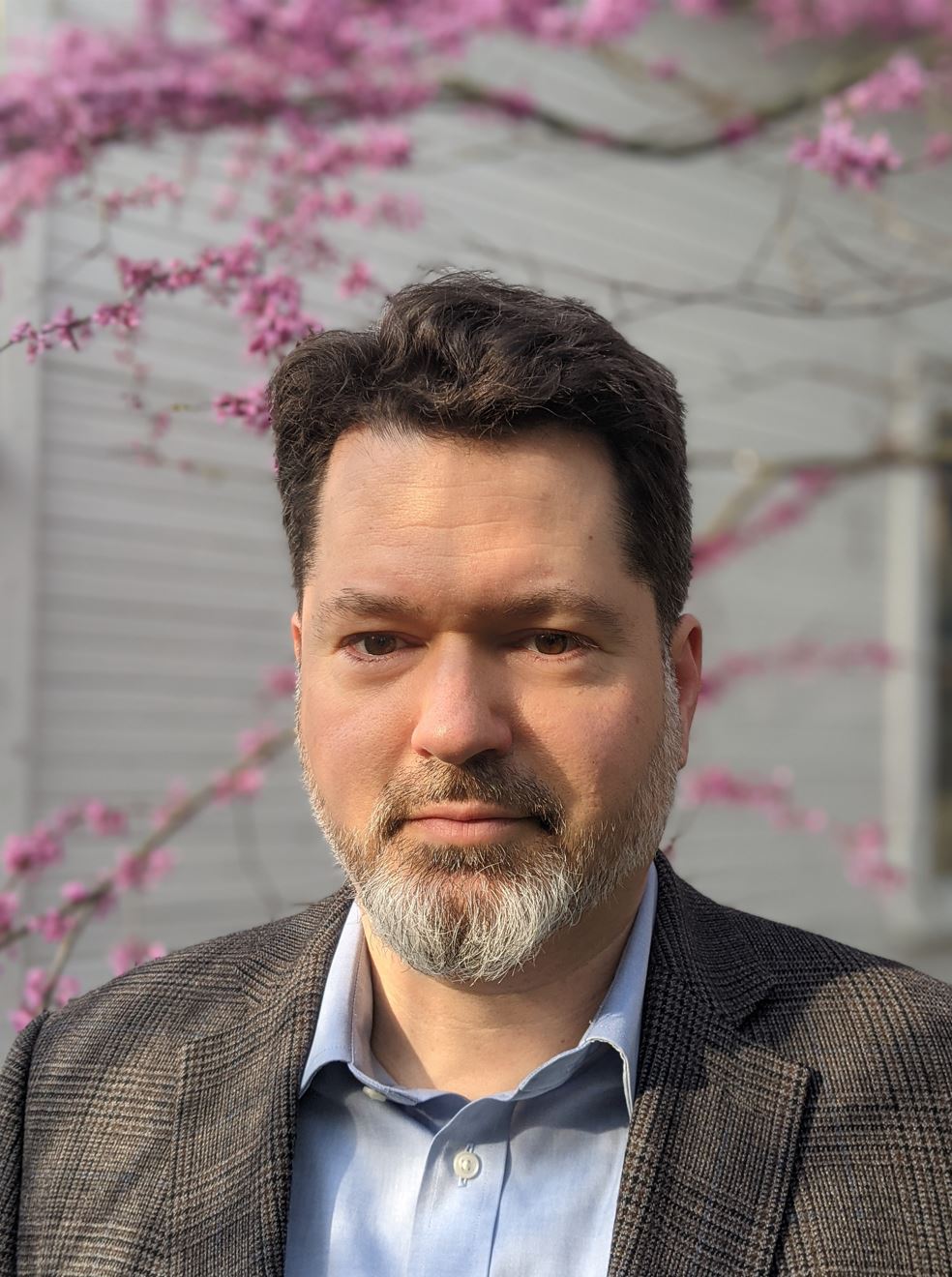 Speaker :
Speaker :Spencer Dew is Associate Teaching Professor of Comparative Studies and African and African American Studies at The Ohio State University and Visiting Assistant Professor of Religious Studies at Kenyon College. He is the author, most recently, of The Aliites: Race and Law in the Religions of Noble Drew Ali (University of Chicago Press, 2019).
M’hamed Oualdi, Professor at Sciences Po and PI of ERC Slavevoices
Olivier Maheo, Postdoctoral researcher at Institut d’Histoire du Temps Présent
Nadia Marzouki, Chargée de recherché CNRS, CERI Sciences Po.
Dans le cadre de "Último jueves del OPALC"
Intervenants:
Guillermo Larrain, professeur invité à la PSIA (Sciences Po)
Modérateur:
Olivier Dabène, Sciences Po-CERI
Responsable scientifique : Olivier Dabène, Sciences Po-CERI.
Anne de TINGUY, chercheure au Sciences Po-CERI, professeur des universités émérite à l’INALCO
Responsable scientifique : Anne de TINGUY, Sciences Po-CERI
Une séance de séminaire organisée dans le cadre du groupe de recherche : Sciences Sociales et Psychanalyse.
Intervenant :
Paul-Laurent Assoun, Professeur Université Paris 7 et Psychanalyste
Responsables scientifiques : François Bafoil, Sciences Po - CERI / CNRS (UMR 7050) et Paul Zawadzki, Groupe Sociétés, Religions, Laïcités (GSRL/UMR 8582).
Colloque organisé à l'occasion du 70e anniversaire du CERI
Analyses proposées par des chercheur.es du CERI
Table ronde organisée à l'occasion du 70e anniversaire du CERI
Le CERI s’est affirmé au sein du paysage académique universitaire par la production d’une recherche originale et la formation de chercheurs et d’enseignants chercheurs présents partout en France et à l’international. Cette table ronde revient sur cette identité spécifique qui a largement essaimé, notamment à l’échelle nationale. Pour ce faire, des chercheuses et chercheurs ayant réalisé leur thèse au CERI, de différentes générations et travaillant sur différents terrains, viendront parler de leur expérience, de la façon dont le CERI les a marqués dans leurs pratiques de la recherche, du terrain et dans leur internationalisation.
Programme :
Mot d'accueil - Alain Dieckhoff, directeur du CERI.
Introduction des coordinatrices - Hélène Combes, Sandrine Revet, Sciences Po-CERI
Président de séance :
Christophe Jaffrelot, Sciences Po-CERI
Intervenants :
David Dumoulin Kervran, Maître de Conférences en Sociologie – HDR, IHEAL - Institut des Hautes Études de l’Amérique Latine, Université Sorbonne Nouvelle
Anthony Amicelle, Maître de conférences en Science politique, Sciences Po Bordeaux, Centre Emile Durkheim
Hamit Bozarslan, Directeur d'Études en sociologie, EHESS, CETOBAC
Marielle Debos, Maîtresse de conférences en Science politique à l’Université Paris Nanterre, ISP
Frédéric Louault, Professeur de Science politique, Université Libre de Bruxelles, CEVIPOL
Responsables scientifiques de l'événement : Hélène Combes, Elise Massicard, Sandrine Revet
Débat organisé dans le cadre de la Chaire d'études sur le fait religieux
Débat autour de l'ouvrage "L'aplatissement du monde: crise de la culture et empire des normes"
Auteur : Olivier Roy (Le Seuil: la couleur des idées, 2022)
Intervenant :
Olivier Roy, Institut Européen de Florence
Discutants :
Alain Dieckhoff, CNRS, Directeur du CERI-Sciences Po
Stéphane Lacroix, CERI-Sciences Po
Modératrice :
Nadia Marzouki, CERI-Sciences Po
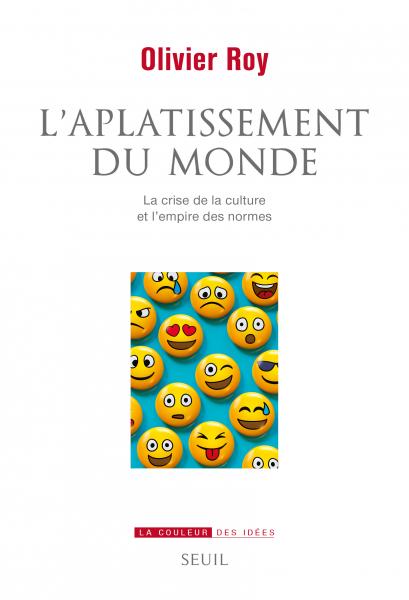 "Identités contre universalisme, genre contre sexe, république contre communautarisme, racisme, féminisme, immigration… Le point commun de ces débats, qui polarisent la vie intellectuelle avec de fortes implications politiques, est de mettre en jeu la culture, dans tous les sens du terme. Mais Olivier Roy récuse ici la thèse de la « guerre culturelle » ou du conflit de valeurs. Ce qui est en crise, selon lui, c’est la notion même de culture, désormais réduite à un système de codes explicites, décontextualisés et souvent mondialisés, qui envahissent les universités comme nos cuisines, les combats identitaires et les religions comme nos pratiques sexuelles, et jusqu’à nos émotions dûment répertoriées en émojis.
"Identités contre universalisme, genre contre sexe, république contre communautarisme, racisme, féminisme, immigration… Le point commun de ces débats, qui polarisent la vie intellectuelle avec de fortes implications politiques, est de mettre en jeu la culture, dans tous les sens du terme. Mais Olivier Roy récuse ici la thèse de la « guerre culturelle » ou du conflit de valeurs. Ce qui est en crise, selon lui, c’est la notion même de culture, désormais réduite à un système de codes explicites, décontextualisés et souvent mondialisés, qui envahissent les universités comme nos cuisines, les combats identitaires et les religions comme nos pratiques sexuelles, et jusqu’à nos émotions dûment répertoriées en émojis.
Responsables scientifiques de l'évènement : Alain Dieckhoff, CNRS, Directeur du CERI-Sciences Po, Stéphane Lacroix, CERI-Sciences Po, Nadia Marzouki, CERI-Sciences Po
Intervenant :
Abram de Swaan, Université d'Amsterdam
Responsables scientifiques : François Bafoil, Sciences Po - CERI / CNRS (UMR 7050) et Paul Zawadzki, Groupe Sociétés, Religions, Laïcités (GSRL/UMR 8582).
Présentation de l’ouvrage de Marc Heim, Introduction au fédéralisme global, avec Jean-Claude Sebag, avocat honoraire, président du Club des fédéralistes, Raimondo Cagiano de Azevedo, Université de Rome La Sapienza, Bruno Gabellieri, Laurence Galichet, Mathias Waechter, Université de Fribourg
Table ronde
Animée par Catherine Wihtol de Wenden,CERI
Jorge Cagiao y Conde, Université de Tours
Vlad Constantinesco, Université de Strasbourg
Sylvie Faucher, Université Panthéon Assas
Hartmut Marhold, Université de Cologne
Giulia Rossolillo, Université de Pavie
Interventions à distance
Diletta Alesa, Erwan Fouéré, Michel Herland, Claude Nigoul
Conclusion :
Raimondo Cagiano de Azevedo, Université de Rome la Sapienza
Responsables scientifiques : Catherine Wihtol de Wenden, (CNRS, CERI) et Raimondo Cagiano de Azevedo, Université de Rome La Sapienza
Hu Ping a participé au mur de la démocratie en 1979. Il a été élu député de Pékin en 1980. Exilé aux Etats-Unis, il a fondé Le Printemps de Pékin, (北京之春) revue dissidente la plus influente de la diaspora, dont il est directeur honoraire.
La séance sera présidée par Jean-Philippe Béja, Sciences Po-CERI
Hu Ping s’exprimera en chinois, et une traduction vers le français sera assurée.
Responsable scientifique : Jean-Philippe Béja, Directeur de recherche Emérite Sciences Po-CERI
Une séance de séminaire organisée dans le cadre du groupe de recherche : Sciences Sociales et Psychanalyse.
Intervenant :
François Bafoil, Directeur de recherche CNRS émérite, Sciences Po-CERI
Responsables scientifiques : François Bafoil, Sciences Po - CERI / CNRS (UMR 7050) et Paul Zawadzki, Groupe Sociétés, Religions, Laïcités (GSRL/UMR 8582).
Intervenants:
Michael Zantovsky, ancien porte parole de la présidence, diplomate, directeur de la Bibliothèque Vaclav Havel à Prague - "L'Europe selon Vaclav Havel"
Jacques Rupnik, Sciences Po-CERI - "Les héritages haveliens revisités: de Visegrad à la Communauté Politique Européenne"
Présidence:
Christian Lequesne Sciences Po-CERI
Responsable scientifique : Jacques Rupnik, Sciences Po-CERI
Présidence et modération :
Alain Dieckhoff, directeur du CERI
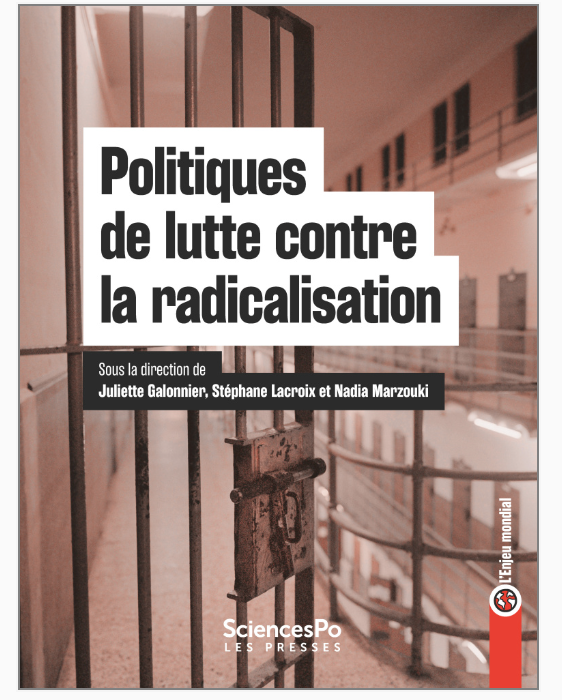 Politiques de lutte contre la radicalisation
Politiques de lutte contre la radicalisationDir. Juliette Galonnier, Stéphane Lacroix, Nadia Marzouki
Auteur•es:
Mohamed-Ali Adraoui, Ayida Aersheng, Sahar Aziz, Didier Bigo, Géraldine Casutt, Claire de Galembert, Jérôme Doyon, Vincent Foucher, Farid Grine, Mariem Guellouz, Emmanuel-Pierre Guittet, Flora Hergon, Rémy Madinier, Roland Marchal, Aude Merlin, Tom Pettinger, Alix Philipon, Thomas Pierret, Olivier Roy, Erik Skare
L'ouvrage s'intéresse à la genèse des politiques de déradicalisation, à leur mise en œuvre dans des contextes aussi différents que la lutte contre Boko Haram au Nigeria, l’assimilation forcée des Ouïghours en Chine, la gestion carcérale de l’extrémisme violent en France ou les projets de réforme religieuse dans plusieurs pays du Moyen-Orient... Lire la suite
This webinar takes stock of existing research on the politics of migration, including its gaps and biases, and introduces new avenues for empirically grounded theory-building. We draw upon the rich collection of empirical cases assembled in a recently published volume - Argentina, Tunisia, Japan and South Korea, the United States and Australia, the Philippines, China, and Saudi Arabia- to showcase the imbrication of migration politics with broader dynamics of regime change, state formation and nation-state ideology. The research also dissects the role of civil society, legal actors, employers, and international norms across democratic and un-democratic contexts. Our research reveals unexpected similarities in migration policies in different political regimes at a time when states across the globe are increasingly adopting illiberal practices and policies. Ultimately, we collectively found that, beyond contextual variations, migration politics offers an ideal vantage point for understanding state transformations and political changes around the world.
We are dedicating this webinar to the memory of Stephen Castles whose work inspired the editors’ project.
Introduction:
Theorising migration politics: do political regimes matter?
Katharina Natter & Hélène Thiollet guest editors of the special issue « Migration Politics across the World » for Third World Quarterly, Volume 43, Issue 7 (2022)
Participants:
Susanne Melde & Luisa Feline Freier Universidad del Pacifico - “When the stars aligned: ideational strategic alliances and the critical juncture of Argentina’s 2004 Migration Law”
Katharina Natter, University of Leiden - Tunisia’s migration politics throughout the 2011 revolution: revisiting the democratisation–migrant rights nexus
David Scott FitzGerald, UC San Diego & Asher Hirsch Monash University - Norm-busting: rightist challenges in US and Australian immigration and refugee policies
Hélène Thiollet,CNRS CERI Sciences Po - Migrants and monarchs: regime survival, state transformation and migration politics in Saudi Arabia
Discussants:
James Hollifield, Southern Methodist University, editor of Controlling Immigration: a global perspective, Stanford University Press, new edition 2022
Nora el Qadim, Université Saint Denis- IUF author of “The symbolic meaning of international mobility : EU-Morocco negotiations on visa-facilitation”, in Migration Studies, 2017.
Responsable scientifique et contact : Hélène Thiollet
The Franco-German Observatory of the Indo-Pacific, co organized by Sciences Po-CERI and the German Institute for Global and Area Studies (GIGA). ...
Speaker:
Ambassador Romana Vlahutin, Special Envoy for Connectivity in the European External Action Service (on sabbatical leave)
Ambassador Romana Vlahutin is a career diplomat. Before joining Croatian Ministry of Foreign Affairs in 1999 she worked as an analyst for the Bassiouni UN Commission for former Yugoslavia, the UN Tribunal (ICTY) in The Hague and the Council on Foreign Relations in Washington DC. As a Croatian diplomat she served in embassies in Washington (Head of Political Section) and Belgrade (Deputy Ambassador), and as the Head of Strategic Analysis and Policy Planning at the MFA in Zagreb (2000-2004). She also served as a Political Director of the OSCE Mission in Kosovo (2006-2007). From 2010-2014 she was the Foreign Policy Advisor to the President of Croatia. Most recently she was posted as the EU Ambassador to Albania (2014-2018). As of 1 March 2019 she has been appointed Special Coordinator and Ambassador at Large for Connectivity in the European External Action Service.
Dr Maaike Okano-Heijmans, Senior Research Fellow, Clingendael Institute, The Netherlands
Chair & Moderation:
Prof. Dr. Patrick Köllner, Vice President of the GIGA
Dr. David Camroux, Honorary Researcher, Sciences Po-CERI.
Scientific coordinators : Christophe Jaffrelot, Sciences Po-CERI / CNRS, David Camroux, Sciences Po - CERI, Patrick Köllner, GIGA and Amrita Narlikar, GIGA.
Dans le cadre de "Último jueves del OPALC"
Intervenant :
Julian Lopez Murcia, Universidad de la Sabana, Colombie
Président/discutant :
Olivier Dabène, Sciences Po-CERI
Responsable scientifique : Olivier Dabène, Sciences Po-CERI.
L'événement est organisé par le groupe "Mondes post-soviétiques" du CERI, en partenariat avec le séminaire "Autoritarisme, guerre et mobilisations dans l’espace postsoviétique" (CERCEC-EHESS).
Intervenante :
Anna Colin Lebedev, Université Paris Nanterre / ISP
Animé par :
Kathy Rousselet, Siences Po/CERI
Gilles Favarel-Garrigues, Sciences Po/CERI
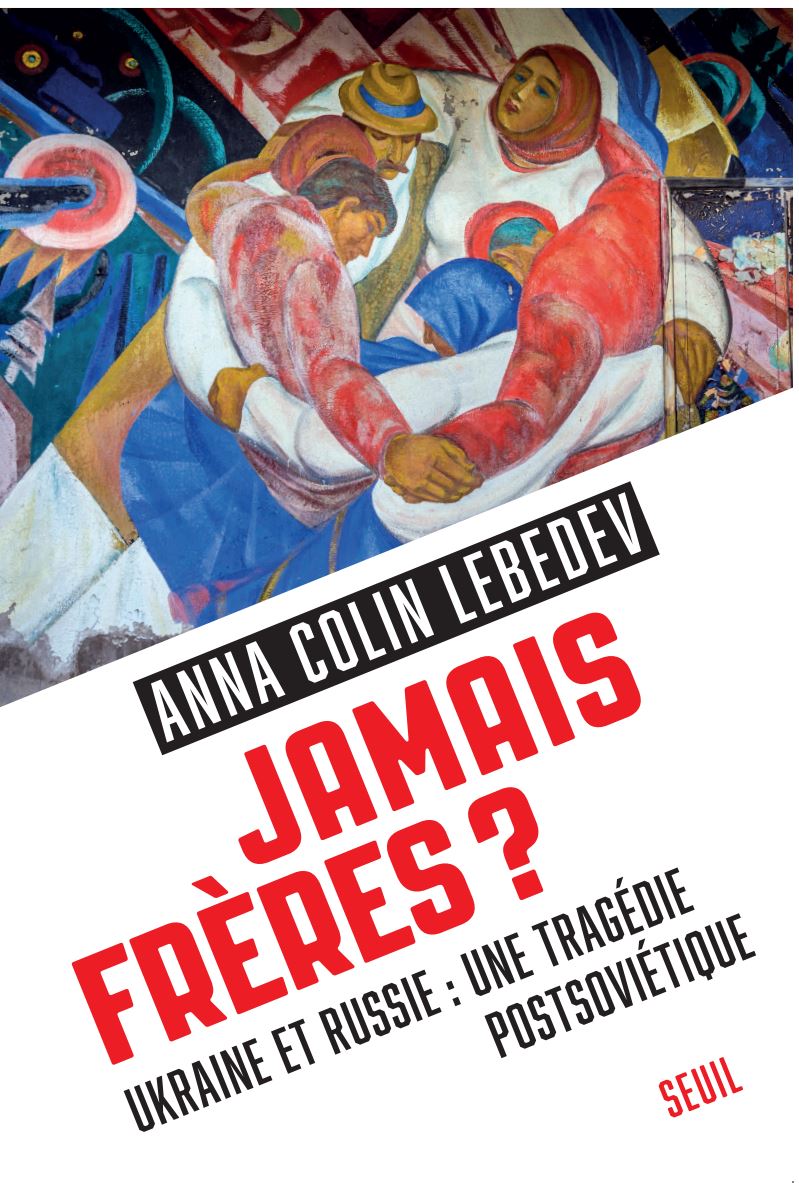 «Nous ne serons jamais frères ; ni de même patrie ni de même mère.» Tels sont les mots adressés par la poétesse ukrainienne Anastasia Dmitruk au peuple russe en 2014, miroir inversé des discours récents de Vladimir Poutine qui ne cesse de souligner au contraire l’identité commune entre les deux pays. S’appuyant sur son expérience de terrain en Russie et en Ukraine, Anna Colin Lebedev retrace les trajectoires de ces deux sociétés pendant les années postsoviétiques. Si l’époque soviétique a créé une proximité forte entre elles, leur passé n’est pas complètement semblable, et les différences n’ont cessé de s’approfondir au cours des trente dernières années. À partir de 2014, l’annexion de la Crimée et la guerre dans le Donbass ont conduit à une rupture entre Russes et Ukrainiens qui ont cessé d’avoir la même vision d’un destin partagé. Et c’est un gouffre qui semble se creuser entre les deux peuples depuis février 2022, alors que l’agression armée de l’Ukraine par la Russie les ont fait basculer dans l’horreur d’un conflit meurtrier. Aucun livre ne suffira à combler ce gouffre et à panser l’immense blessure de la guerre. Ce texte se veut cependant un pas dans une direction essentielle : ne pas renoncer à connaître et comprendre l’autre.
«Nous ne serons jamais frères ; ni de même patrie ni de même mère.» Tels sont les mots adressés par la poétesse ukrainienne Anastasia Dmitruk au peuple russe en 2014, miroir inversé des discours récents de Vladimir Poutine qui ne cesse de souligner au contraire l’identité commune entre les deux pays. S’appuyant sur son expérience de terrain en Russie et en Ukraine, Anna Colin Lebedev retrace les trajectoires de ces deux sociétés pendant les années postsoviétiques. Si l’époque soviétique a créé une proximité forte entre elles, leur passé n’est pas complètement semblable, et les différences n’ont cessé de s’approfondir au cours des trente dernières années. À partir de 2014, l’annexion de la Crimée et la guerre dans le Donbass ont conduit à une rupture entre Russes et Ukrainiens qui ont cessé d’avoir la même vision d’un destin partagé. Et c’est un gouffre qui semble se creuser entre les deux peuples depuis février 2022, alors que l’agression armée de l’Ukraine par la Russie les ont fait basculer dans l’horreur d’un conflit meurtrier. Aucun livre ne suffira à combler ce gouffre et à panser l’immense blessure de la guerre. Ce texte se veut cependant un pas dans une direction essentielle : ne pas renoncer à connaître et comprendre l’autre.Responsables scientifiques de l'événement : Vera Ageeva, Juliette Faure, Gilles Favarel-Garrigues, Denys Gorbach, Elisabeth Miljkovic, Kathy Rousselet, Ioulia Shukan, Tatyana Shukan, Victor Violier
« Médias, migrations : la fabrique de l’opinion », une série de rencontres publiques
Table ronde #4 : L'éloignement des étrangers: chiffres, politiques et cadrages médiatiques
Quel angle éditorial pour traiter des “éloignement” ou des “expulsions” des étrangers ? Cette 4e rencontre “Médias Migrations” organisée par Sciences Po-Ceri (Projet PACE), l’Institut Convergences Migrations (revue De Facto Migrations) et l’association Désinfox-Migrations s’intéresse au traitement médiatique des mesures d’éloignement et de ce que la recherche et les statistiques en disent à partir de perspectives croisées franco-allemandes.
Ces sujets vont être débattus en France et en Allemagne cet automne dans le cadre de projets de loi sur l’immigration. Ces deux réformes comprennent des propositions pour faciliter ou accélérer le retour d’étrangers en situation irrégulière.
Quelles ressources sont disponibles pour obtenir des données? Comment comprendre les données et les utiliser? Comment ce sujet est traité, cadré, politisé et reçu?
Introduction:
Tania Racho, Désinfox Migrations
Hélène Thiollet (CNRS CERI Sciences Po) projet PACE
Invités:
Matthieu Tardis, chercheur, IFRI
Marcus Engler, chercheur au DeZIM-Institut
Emmanuelle Chaze, journaliste
Pierre-Louis Caron, journaliste, France Info
Responsable scientifique : Hélène Thiollet, Sciences Po-Ceri
Intervenant :
Pierre-Henri Castel, Directeur de recherches au CNRS/Senior Researcher at CNRS EHESS, Lier-FYT (UMR8065), Laboratoire interdisciplinaire d'études sur les réflexivités-Fonds Yan Thomas
Responsables scientifiques : François Bafoil, Sciences Po - CERI / CNRS (UMR 7050) et Paul Zawadzki, Groupe Sociétés, Religions, Laïcités (GSRL/UMR 8582).
The Franco-German Observatory of the Indo-Pacific
Speaker:
Prof. Dr. David Capie is Director of the Centre for Strategic Studies, New Zealand, and Professor of International Relations at Victoria University of Wellington. His research interests focus on conflict and security issues, particularly in the Asia-Pacific region, and New Zealand's foreign relations. He has authored or co-authored three books and numerous articles and book chapters. His research has been supported by the Rockefeller Foundation, the East-West Center and the Royal Society of New Zealand's Marsden Fund. In 2007, he was a Visiting Scholar at the Weatherhead Center for International Affairs at Harvard University.
Chairs & Moderation:
Prof. Dr. Patrick Köllner is Vice President of the GIGA, Director of the GIGA Institute for Asian Studies, and a political science professor at the University of Hamburg.
Dr. David Camroux is Honorary Research Fellow and Adjunct Professor, Sciences Po-CERI.










